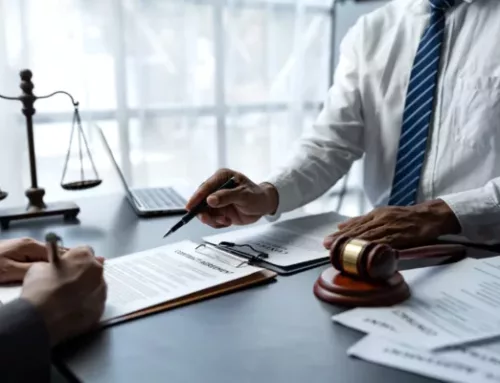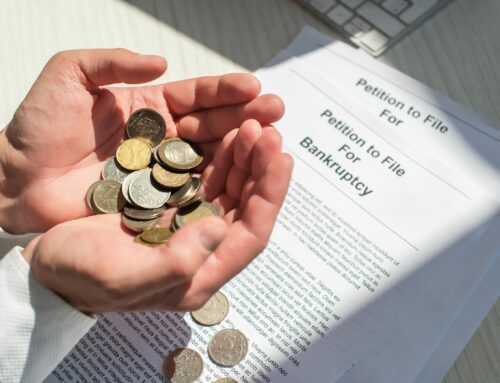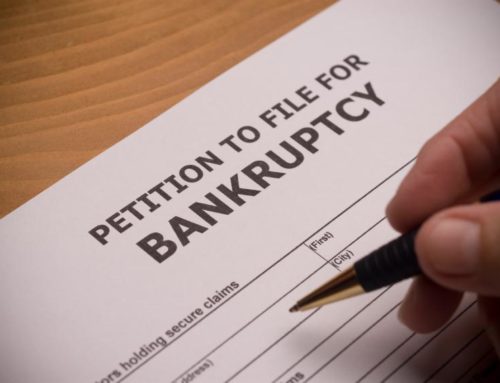The “automatic stay” is an injunction triggered by filing one of the following types of bankruptcy: Chapter 7, Chapter 11, and Chapter 13. With it in place, debtors are protected from further debt collection activities from creditors and collection agencies. With an automatic stay, these entities must stop all collection efforts right away. Those who filed for bankruptcy should no longer face persistent phone calls and correspondence from debt collectors, lawsuits that aim to collect debt payment, and the threat of wage garnishment or lien.
Many debtors are motivated to file for bankruptcy because of the automatic stay. Any debtor would appreciate the stress relief it provides, as well as the opportunity to regroup and fix his or her finances. The bankruptcy process includes a debt discharge, which offers a fresh start to somebody in financial distress.
How Can the Automatic Stay Help?
 What are the potential troubles debtors face? Foreclosure, disconnection of utilities and other basic services, and jeopardized employment due to wage garnishment are just some of them. With an automatic stay, bankruptcy filers can avoid disconnection of utilities for 20 days. They can stop garnishment of their wages unless it’s for a high priority obligation such as child support or alimony. They can also hold off foreclosure or eviction. It must be noted, however, that the stay might not apply if the landlord already has judgment of possession. Another scenario wherein the stay doesn’t apply is if there are claims from the landlord that the tenant has endangered the property or abused controlled substances.
What are the potential troubles debtors face? Foreclosure, disconnection of utilities and other basic services, and jeopardized employment due to wage garnishment are just some of them. With an automatic stay, bankruptcy filers can avoid disconnection of utilities for 20 days. They can stop garnishment of their wages unless it’s for a high priority obligation such as child support or alimony. They can also hold off foreclosure or eviction. It must be noted, however, that the stay might not apply if the landlord already has judgment of possession. Another scenario wherein the stay doesn’t apply is if there are claims from the landlord that the tenant has endangered the property or abused controlled substances.
In case of foreclosure, debtors usually prefer to file under Bankruptcy Chapter 13 instead of Chapter 7. While both trigger the automatic stay, that of Chapter 13 offers better protection. There are more tools Chapter 13 bankruptcy filers can use to keep their homes. Chapter 7 bankruptcies cannot stop a creditor from proceeding with a foreclosure if there’s no debt repayment plan or any other formal arrangement agreed upon.
Automatic Stay Limitations
There are always exceptions, and with the automatic stay, there are instances when it doesn’t apply. There are certain debts that are just not dischargeable. If you’re thinking of filing for bankruptcy, it behooves you to know which proceedings and actions the automatic stay doesn’t affect. Here are some of them:
- A lawsuit against you that was filed to establish, modify, or collect alimony or child support.
- Tax return demands and audits from the IRS, although the stay can prevent the bureau from seizing your property or issuing a tax lien.
- Criminal proceedings, even those concerning debts, although the criminal part may be separated from the debt repayment part.
- Repayment of loans from certain job-related pensions, the failure of which may cause part of your paycheck to be withheld, even with an automatic stay in effect.
Lifting the Automatic Stay
The automatic stay may be lifted if a creditor with valid cause files a motion to remove it. For instance, landlords may ask the bankruptcy court to lift the stay when tenants file for bankruptcy right before being evicted for failure to pay rental obligations, unable to pay rent that is due or their arrears. The same is true for secured creditors who go to court to request lifting the stay if bankruptcy was filed just as they were about to repossess collateral for repeated failure of their debtors to make loan payment.
Want to Know More about Bankruptcy Protection? Consult a West Virginia Bankruptcy Attorney Now!
Bankruptcies offer varying benefits. If you’re curious about the extent of the protection you can get from a bankruptcy filing, speak with a bankruptcy lawyer for correct information and legal guidance. If you need advice about debt relief, call us at Thomas E. McIntire and Associates, L.C. and talk to one of our bankruptcy attorneys today.





